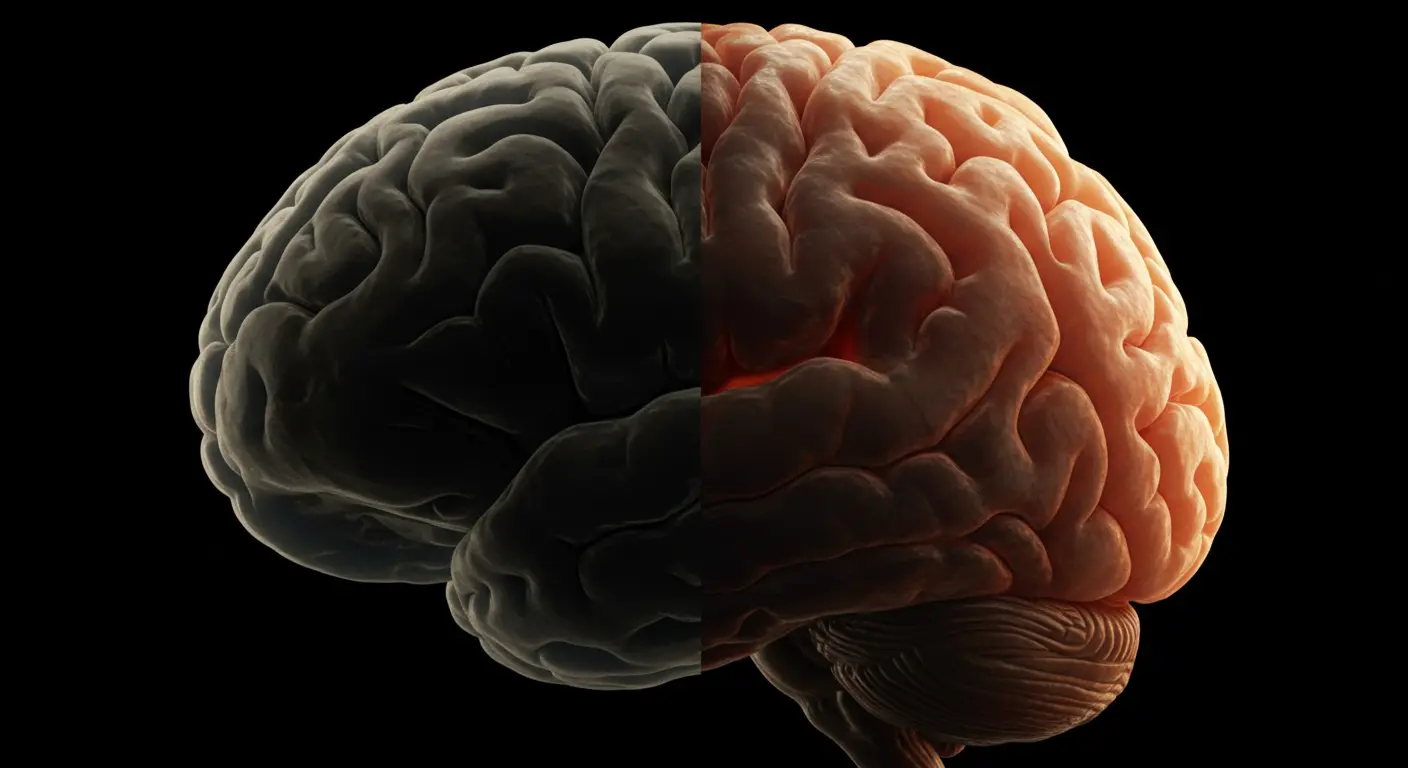Discover how treating obstructive sleep apnea (OSA) with CPAP therapy can reverse brain damage and improve cognitive function. Learn more about OSA risks and treatments.
What is Obstructive Sleep Apnea (OSA)?
Obstructive sleep apnea is a chronic condition where the throat muscles relax excessively during sleep, physically blocking the airway. This results in brief, involuntary pauses in breathing – sometimes 20-30 times per hour. These interruptions force the brain to wake repeatedly, disrupting deep sleep stages essential for physical and cognitive health.
The resulting lack of oxygen reaching the brain during these episodes isn’t just uncomfortable; it can lead to tangible harm. Severe, untreated OSA is linked to significant brain structure changes and impairments in areas essential for:
- Maintaining cognitive skills like memory and concentration²
- Regulating mood
- Managing alertness and vigilance
- This evidence highlights the critical link between the physical act of breathing during sleep and its neurological impacts.
Brain Damage from OSA: The Evidence
Research provides compelling evidence of OSA’s effects on the brain.¹
Study 1: Reversing White Matter Damage
Apivotal study involved 17 men with severe, untreated OSA.
Before treatment, participants showed concerning signs, including:
Significant reduction in white matter, vital brain pathways often metaphorically termed the brain’s “subway.”³
Impaired cognitive scores impacting thinking, mood, and alertness.
Following a year of consistent CPAP therapy – which provides pressurized air to keep the airway open – an almost complete reversal of the structural brain damage was observed.⁴ Cognitive scores also notably improved, along with mood, alertness, and overall quality of life. This underlines the potential for repair when OSA is properly managed.
Study 2: Damage to Gray Matter Too
Another study focused on the impact of OSA on gray matter, the thinking-carrying tissue in the brain. It found that severe OSA caused damage to this crucial area.
The encouraging news was that just THREE MONTHS of CPAP therapy initiated repairs, demonstrating that positive neurological outcomes can occur relatively quickly with appropriate treatment.⁵
Collectively, these studies send a powerful message from the research community, reaffirmed by the American Academy of Sleep Medicine: OSA is not a minor condition. Its neurological consequences are serious and treatable.⁶,
How CPAP Therapy Repairs the Damage
Continuous Positive Airway Pressure (CPAP) is widely recognized as the gold standard treatment for moderate to severe OSA. During sleep, the CPAP machine delivers a continuous stream of pressurized air through a mask worn over the nose or mouth. This steady air pressure acts like gentle wind, keeping the throat passages open and preventing the disruptive pauses characteristic of OSA. Furthermore, CPAP helps restore normal oxygen levels in the blood, directly benefiting the brain’s delicate nerve cells.
Averting the detrimental cycles of disrupted sleep and low oxygen allows the brain to heal. Treating OSA effectively can help reverse some of the structural changes and improve cognitive functions, mood, and daytime alertness, thereby enhancing overall health and well-being.⁶
Tinnitus & Hidden Dangers Beyond Brain Damage
Often, the destructive cycle of OSA isn’t signaled by obvious events. While loud snoring is a common concern, the real danger involves less visible interruptions. Hidden breathing pauses (apneas) lasting up to 30 seconds, or even longer, and the subsequent gasping or choking sensation, can systematically degrade health without immediate notice.
Obesity, high blood pressure, and Type 2 diabetes are significant risk factors that increase susceptibility to this dangerous sleeping disorder.⁷ If you suspect OSA might be the cause of sleep disturbances or daytime health issues, professional evaluation is crucial.
Conclusion
The link between OSA and brain health is undeniable. Severe OSA triggers changes in the brain’s vital structures, but this damage isn’t necessarily irreversible. Studies show that treating OSA with therapies like CPAP can initiate a powerful recovery process, repairing brain tissue and sharpening cognitive function.⁴ If you suspect you have sleep apnea, don’t ignore the signs. Improving sleep quality by addressing sleep apnea can safeguard your brain’s health and dramatically enhance your overall quality of life. Discuss sleep concerns with your doctor.
Frequently Asked Questions
Can treating sleep apnea reverse brain damage completely?
While significant reversal is common after several months of consistent treatment,⁴ improvements depend on the duration of OSA and individual factors. Early intervention is ideal.
Besides brain damage, what other health risks does OSA cause?
Untreated OSA is linked to a higher risk of cardiovascular problems (like heart attack and stroke), type 2 diabetes, high blood pressure, stroke, and liver problems. The good news is OSA is effectively treatable.
Sources
- Obstructive Sleep Apnea: Symptoms and Causes: https://www.mayoclinic.org/diseases-conditions/obstructive-sleep-apnea/symptoms-causes/syc-20355149
- CPAP Therapy Guide: https://www.webmd.com/sleep-disorders/guides/cpap-for-sleep-apnea-to-prevent-complications
- Sleep Apnea and Cognitive Health: https://www.nih.gov/news-events/featured-news/health/article-sleep








